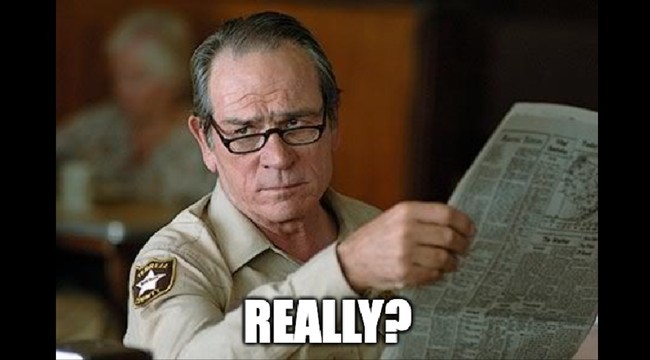
No surprise on the first point, not after handing out awards for genocide denialism in Ukraine, mythical Russian collusion, and most recently terrorist propaganda on behalf of people who started a war with the most grotesque atrocities seen in decades. The second point seems a bit more curious for an organization whose entire oeuvre depends on snitches not getting stitches.
It turns out that the Pulitzer board believes in whistleblowers for thee but not for we.
The Free Beacon’s Eliana Johnson offers this unique look into “journalism” by reporting on how the Pulitzer board really feels about reporting — when directed at them. Eliana had agreed to help judge one Pulitzer category, National Reporting, and signed an NDA to keep that deliberation process confidential. However, when Pulitzer handed an award for Commentary to Mosab Abu Toha, whose public commentary channeled Hamas PR and denigrated the hostages as pretenders and the decision blew up into a national story itself, Eliana got curious about that committee’s deliberations.
First, Eliana took note of the committee’s composition:
Abu Toha’s work was submitted to the Pulitzers by the New Yorker. The nominating jury that made him a finalist included Zeba Khan, the founder of Muslims for Obama; Jon Allsop, who has raised the prospect that the Israeli military is deliberately targeting journalists and cheered the “consequences” the Biden administration imposed on the Jewish state; and Julia Preston, who resigned from her job at the liberal Marshall Project because the organization doesn’t allow staff to engage in partisan political activity, citing her belief that Trump is “an existential threat to our democracy.”
That raised a few questions, as did the potential involvement of board member and BDS supporter Viet Thanh Nguyen, who had declared Israel an “occupying power” less than two weeks after the October 7 massacres. First Eliana posed questions about the deliberation and fairness of the reviewers to Pulitzer administrator Marjorie Miller, who offered up boilerplate about the Pulitzer board’s commitment to “excellence in reporting.”
That made what followed even more ironic:
On Tuesday morning, I received an email from Miller, subject line “Confidentiality,” alleging that my emails violated the confidentiality agreement I signed when I became a Pulitzer juror and that, while jurors are selected “for their character, expertise and integrity … Unfortunately, we occasionally misjudge.”
Bear in mind that the ‘misjudgment’ Miller claims in this case isn’t awarding a Pulitzer to a Hamas propagandist, but in asking Eliana to join a committee in the first place. Eliana went back and re-read that agreement and notes that it never prevented her from reporting on anything other than the deliberations in the National Reporting category and to refrain from publishing the finalists before the prizes were awarded. She has no confidentiality responsibilities for the work of other Pulitzer committees, and certainly no restriction on asking members of the other committees if they’d like to discuss how Pulitzer awarded a Commentary prize to a Hamas propagandist.
Eliana reaches an obvious conclusion — the Pulitzer board and members are a bunch of “journalistic” hypocrites:
The Pulitzer board’s position that any reporter who participates on one of its many juries is prohibited from doing any reporting about the organization itself—even when one of its awards has become an international news story—is preposterous. Here we have an institution, ostensibly committed to supporting “fearless” journalism, trying to strangle reporting about what was known to the jury and when—and which board members cast votes on this award.
True enough, but that’s hardly the worst of it. Since when do the Pulitzers respect NDAs? They routinely award prizes, especially in National Reporting, to stories built on sources that violate existing confidentiality agreements. The most obvious example would be the Washington Post’s Pulitzer for its Watergate coverage, driven at least in part by FBI exec Mark “Deep Throat” Felt, along with other insiders. And if you want to exempt the government from this calculation — a fair position, although arguable — the Pulitzers just awarded the WSJ a prize in this category for a deep dive into Elon Musk, built on input from people who clearly would have signed NDAs:
For chronicling political and personal shifts of the richest person in the world, Elon Musk, including his turn to conservative politics, his use of legal and illegal drugs and his private conversations with Russian President Vladimir Putin.
They gave Reuters the prize last year for … the same thing:
For an eye-opening series of accountability stories focused on Elon Musk’s automobile and aerospace businesses, stories that displayed remarkable breadth and depth and provoked official probes of his companies’ practices in Europe and the United States.
How many NDAs did those reporters induce signatories to violate? Why didn’t Pulitizer disqualify these entries? Have they disqualified editors from Reuters or the WaPo from sitting on their committees for NDA violations? How about the 2020 award to the Seattle Times for its exposé on the deadly Boeing 737 MAX cover-up? Let’s also take a look at the aforementioned 2018 joint award to the New York Times and Washington Post for its “deeply sourced” reporting on what turned out to be a Hillary Clinton campaign dirty trick and a hoax:
For deeply sourced, relentlessly reported coverage in the public interest that dramatically furthered the nation’s understanding of Russian interference in the 2016 presidential election and its connections to the Trump campaign, the President-elect’s transition team and his eventual administration.
“Deeply sourced” means “anonymous sources who would have gotten fired for going public with drizzly horse puckey.” This had all of the hallmarks of Walter Duranty-level reporting; the Pulitzer board loved it because it told a story they wanted to read. Who cares if it were true or those “deep” sources were lying out their ass?
Not the Pulitzer board. They are too busy rewarding The Correct Narratives rather than journalism. They wouldn’t recognize journalism if it bit them in the butt … which it is now presently doing at the Free Beacon.











